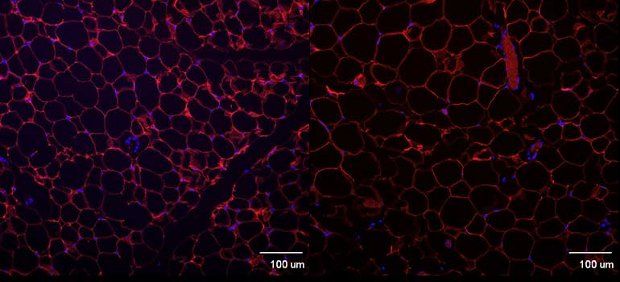Having carried out a series of experiments on laboratory mice, specialists at the University of British Columbia in Canada believe to have identified a so-called obesity gene that might explain why some people have a tendency to gain weight up to the point when their health is in danger.
If they are right and this gene really does promote weight gain, toying with it might help fight obesity by making it possible to prevent the buildup of fat in individuals who are already overweight or who run the risk of becoming so.
Silencing the gene helped mice get in shape
The gene that the University of British Columbia researchers focused on had previously been shown to encode a protein dubbed 14-3-3zeta, in turn in charge of controlling the population of fat cells in the body and the size that they can get to.
“People gain fat in two ways - through the multiplication of their fat cells, and through the expansion of individual fat cells. This protein affects both the number of cells and how big they are, by playing a role in the growth cycle of these cells,” explains scientist Gareth Lim.
When this gene that encodes the fat-regulating protein 14-3-3zeta was silenced in mice, the rodents lost 50% of their white fat, i.e. fat associated with obesity and all the health complications that come with it. This happened despite the fact that the animals did not change their diet.
In turn, when laboratory mice were genetically altered to have higher levels of the 14-3-3zeta protein in their body, they ended up accumulating around 22% more white fat than they normally would have, considering the diet the researcher team had put them on.
Interestingly, the activity of this gene that the University of British Columbia specialists toyed with to get mice to either lose or gain weight and white fat in particular has never before been shown to correlate with a higher risk of obesity.
The gene could also drive obesity in people
In a report in the science journal Nature Communications, the scientists behind this study explain that, as shown by previous investigations, we humans are no strangers to the 14-3-3zeta protein. Au contraire, we carry it in each and every cell of our body.
Hence, it makes sense to assume that, just as it happened when the specialists experimented on mice, silencing it in individuals who carry a bit too much weight for their own good could help them get in shape. Still, further research is needed before attempting anything of the kind.

 14 DAY TRIAL //
14 DAY TRIAL // 

